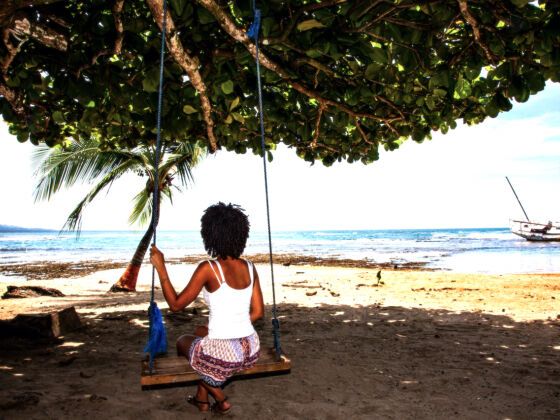You weigh an extra 5 pounds due to a mass accumulation of 500 colone coins.
Don’t blame weight gain on beachside sunset drinking — blame it on the large 500 colone brass coins that jingle around the bottom of your bag and in your pockets due to the fact that not many local places here want to accept your credit card.
